Calls for Ukraine
Calls for Europe
Calls for USA
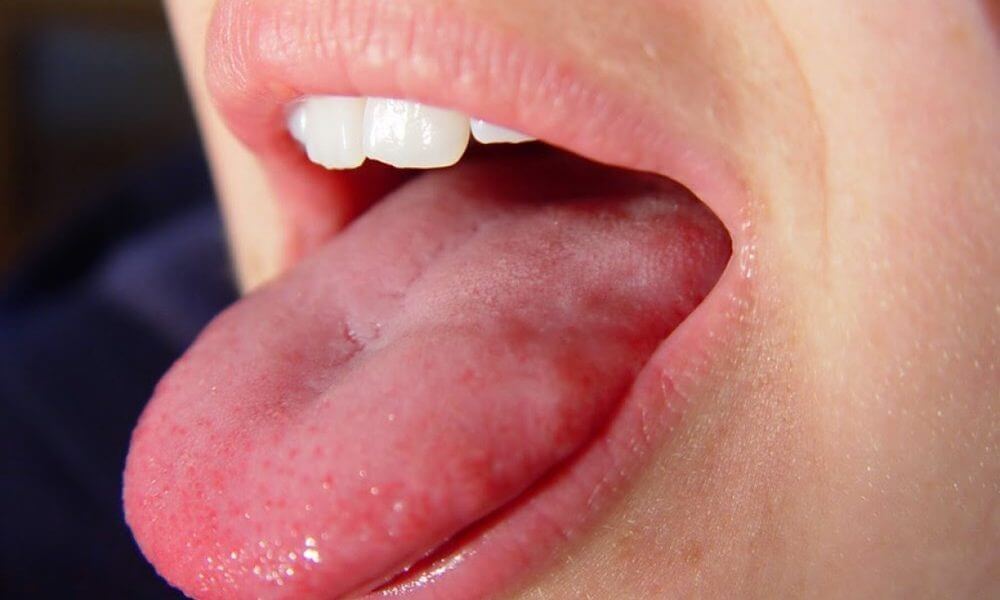
In the general structure of cancer incidence, tongue cancer is quite rare, accounting for only 1% of all newly diagnosed types of malignant neoplasms. However, it is one of the most common forms of head and neck cancer.
Until recently, cancer tumors were more common in older men who smoke and/or drink alcohol. In recent decades, squamous cell carcinoma of the oral cavity and the base of the tongue has begun to be detected in women and young patients who do not have traditional risk factors such as smoking and alcohol consumption. Doctors believe that this is due to a sharp increase in the incidence of squamous cell carcinoma of the oropharynx associated with the human papillomavirus.
As mentioned above, the two most important risk factors for tongue cancer are excessive smoking and alcohol consumption. Cigarette smoke contains carcinogens such as nitrosamines and polycyclic hydrocarbons. Alcohol in the body is metabolized into acetaldehyde, which disrupts the DNA structure of cells, causing mutations.
Other important risk factors for squamous cell carcinoma of the tongue are:
HPV has also been shown to play a significant role in the development of tongue cancer.
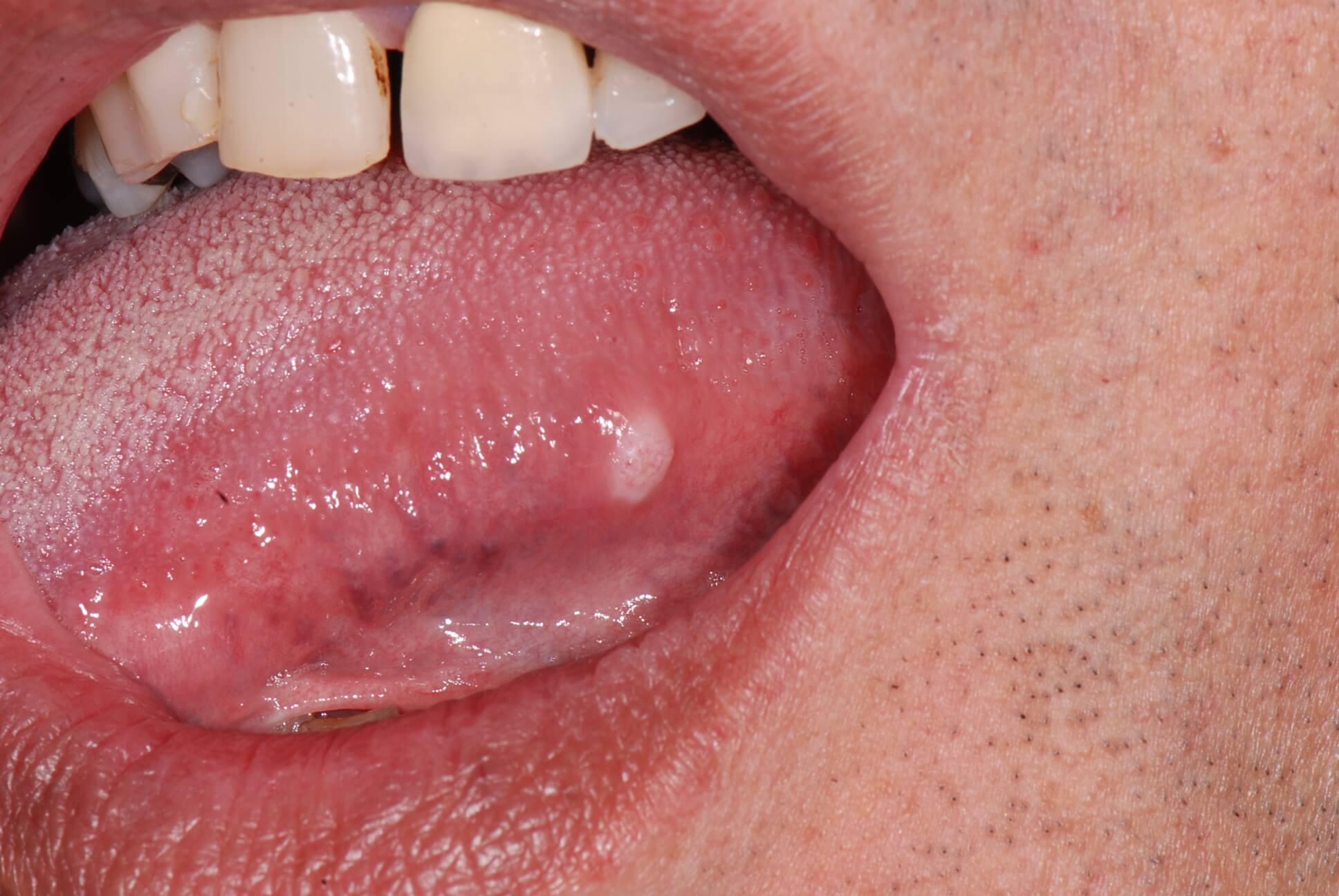
The most common signs of a malignant process in the oral cavity are:
One of the symptoms of tongue cancer is a lump in the neck. This means that the tumor has spread to the lymph nodes.
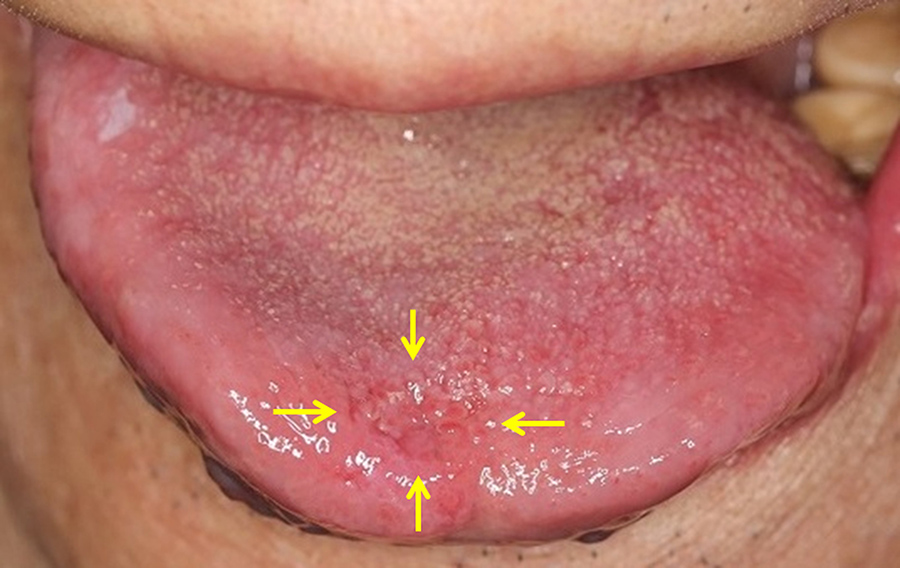
At an early stage, the tumor may not cause specific symptoms. However, there are signs that should not be ignored. These include:
It is important to note that these symptoms do not necessarily indicate the development of a malignant process. However, a medical examination is required. Early detection and timely initiation of treatment increase the chances of a successful recovery.
MedTour cooperates with the best clinics and oncologists specializing in the diagnosis and treatment of oral cancer around the world. Contact our medical coordinator, who will select a clinic and an available specialist for you free of charge, based on your personal needs.
The rate of development of tongue cancer depends on many factors, such as the type of disease, its stage, the general health of the patient, and the effectiveness of the treatment. Early-stage cancers usually develop more slowly, so patients have a better chance of a complete cure. In the later stages, patients may require longer and more expensive therapy, which does not always guarantee success.
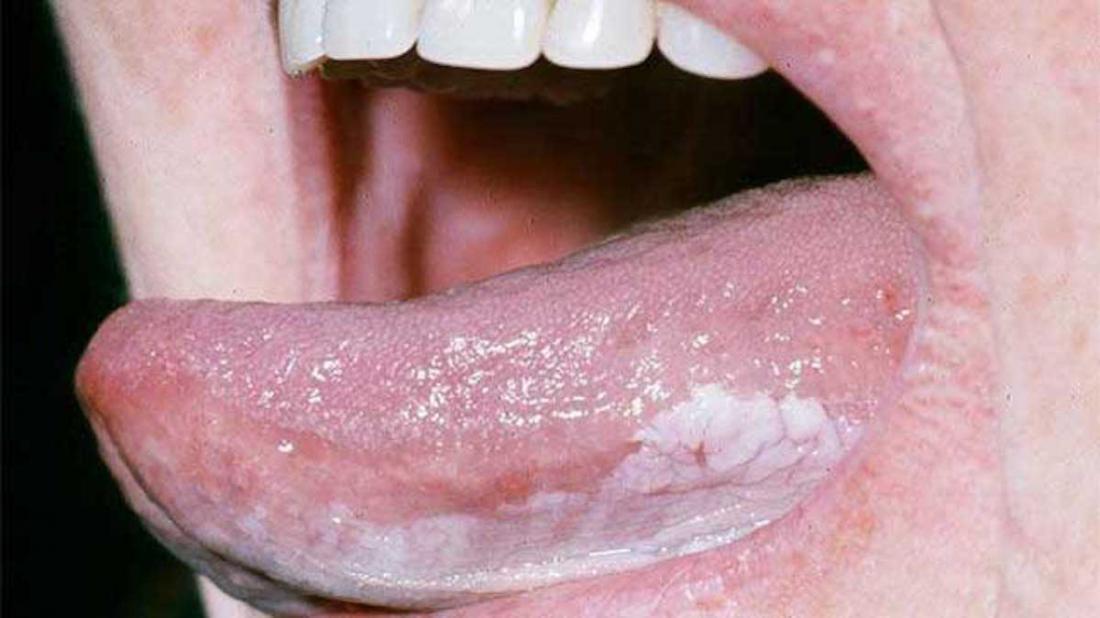
The most common type of cancer of the tongue is squamous cell carcinoma. It is diagnosed in 90% of cases. Most often, the tumor affects the tongue, lips and floor of the mouth. It is important to note that the anterior two-thirds of the tongue is considered part of the oral cavity, while the posterior third (the base of the tongue) is considered part of the oropharynx.
Although cancer of the base of the tongue is histologically similar to usual carcinoma, its treatment and prognosis are somewhat different. At an advanced stage, this form of cancer has a poor prognosis with a 5-year survival rate of about 50%.
Less common forms of tongue cancer are:
Accurate determination of the type of cancer plays an important role in the choice of therapeutic tactics.
There are various staging systems for malignant tumors, but usually doctors distinguish 5 stages of tongue cancer:
The complexity of the treatment of malignant tumors in stages III and IV lies in the fact that they often recur (return), in contrast to cancer at an early stage.

The main method that distinguishes tongue cancer from a benign neoplasm is a biopsy – taking a small tissue sample for laboratory analysis. If abnormal cells are found in the sample, a doctor may additionally order a CT or MRI to determine the location and size of the tumor. Imaging diagnostics also helps to determine the stage of the disease and choose the most effective methods of treatment.
The choice of therapeutic tactics depends on the stage and characteristics of the tumor, as well as on the age, general condition and preferences of the patient. In the early stages, when the tumor is small and has not yet spread to surrounding tissues or lymph nodes, tongue cancer can be cured without surgery. To do this, doctors can use anticancer techniques such as:
If tongue cancer is at a more advanced stage and has metastasized to lymph nodes or surrounding tissues, surgery is needed to prevent further spread of cancer cells.
Modern oncology centers offer various protocols for the treatment of tongue cancer. The choice of specific antitumor techniques is carried out taking into account the stage of the disease and the individual characteristics of the patient.
Stage 0 (carcinoma in situ)
If malignant cells have not spread beyond the mucous membrane, surgical treatment is prescribed. Usually the Mohs method is used. During surgery, doctors remove thin sections of tissue, checking each sample for cancer cells. This approach allows surgeons to remove the tumor completely and at the same time preserve as much healthy tissue as possible. If the patient for some reason cannot or does not want to undergo surgical treatment, a doctor may suggest alternative non-invasive therapies.
Stage I and II
When the tumor begins to penetrate under the mucosa, it is removed surgically. In some cases, nearby lymph nodes are also removed and tested for cancer cells. If the doctor believes that the tumor could not be completely removed and there is a high risk of recurrence, the specialist may additionally prescribe chemotherapy or radiation therapy.
Stage III
If the tumor is larger than 4 cm or has spread to regional lymph nodes, doctors prescribe surgery followed by radiation or chemoradiotherapy.
Stage IV (metastatic cancer)
When the tumor has spread to distant parts of the body, surgery is indicated to relieve symptoms and slow the progression of the disease. If the patient is inoperable, doctors use alternative treatments such as radiotherapy, chemotherapy, targeted therapy, and immunotherapy, as well as combinations of these.
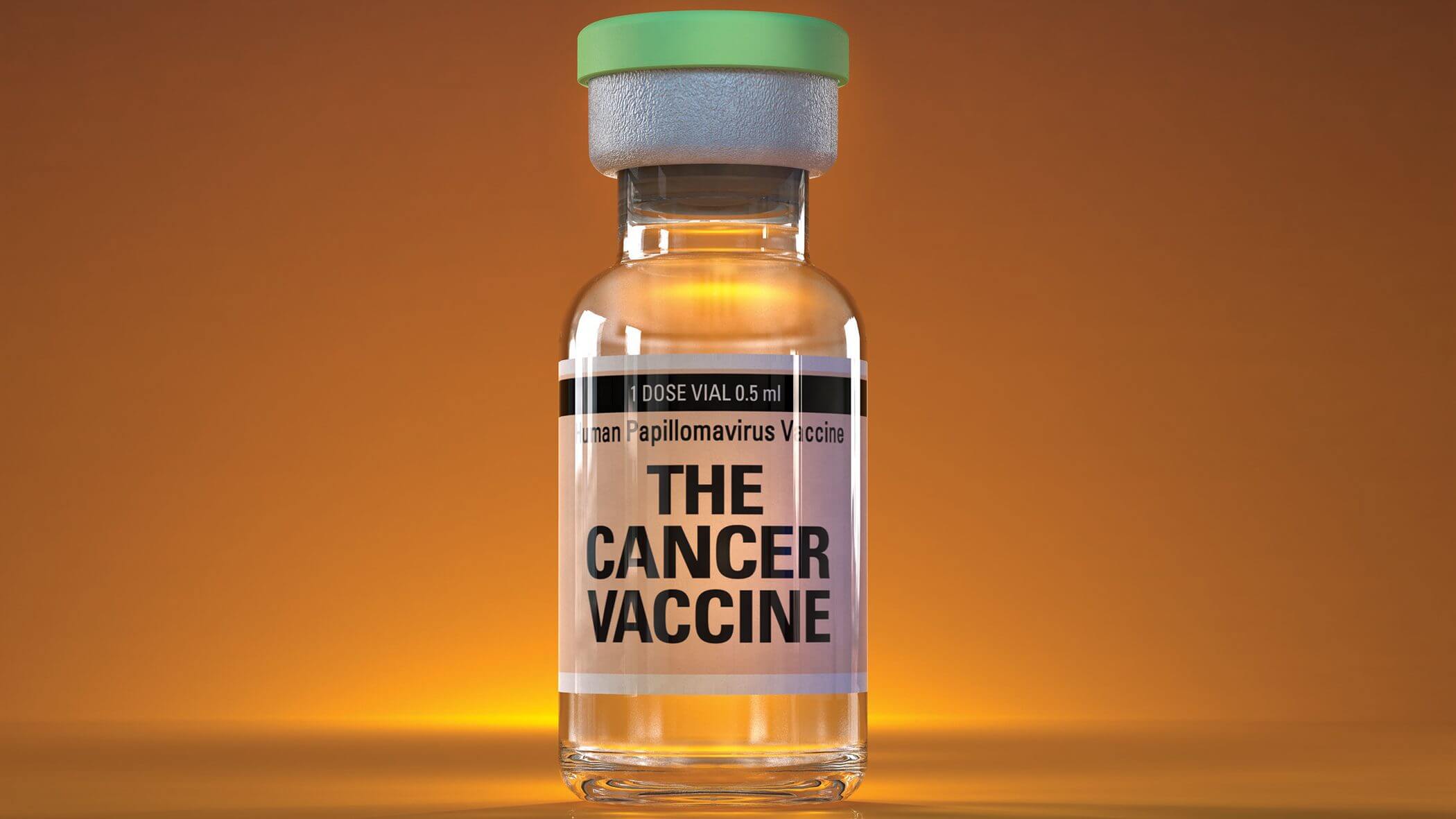
Vaccine therapy is one of the most promising areas in oncology. In recent years, many countries have been actively developing and researching antitumor vaccines. Their principle of action is slightly different from standard prophylactic drugs. The main purpose of a cancer vaccine is to help the patient’s own immune system fight cancer cells.
The MedTour company currently offers a unique treatment option with two cancer vaccines:
Cancer vaccines are not a panacea for cancer. However, this is a real opportunity to improve the results of standard treatment and prevent recurrence of the disease. To learn more about vaccine therapy, please contact the MedTour coordinating doctor by phone or using the feedback form.
The prognosis for tongue cancer depends on various factors such as the stage, size and location of the tumor, the type of cancer cells, the general health of the patient, and the treatment received.
In the early stages of tongue cancer, when the tumor has not spread to nearby tissues or lymph nodes, the prognosis is usually better. In such cases, the chances of successful treatment and recovery are higher. In more advanced stages of cancer, when the tumor has metastasized to lymph nodes or distant organs, the prognosis may be less optimistic.
Survival rates for tongue cancer vary depending on how far the cancer has spread:
Modern therapies such as immunotherapy and targeted therapy help improve prognosis even in advanced cancers.
MedTour cooperates with the best oncology centers specializing in the treatment of oral cancer. We will select the best clinic for you free of charge, taking into account your capabilities and personal preferences. The medical coordinator of MedTour will help with the solution of any organizational issues at all stages of treatment.
The MedTour platform contains information about leading doctors who specialize in the treatment of tongue cancer. We cooperate with the best oncologists in the world. Call the number listed on the site or fill out the feedback form to get a free consultation. Our medical coordinator will select the best specialist according to your personal needs and wishes.
Please rate the work of MedTour
